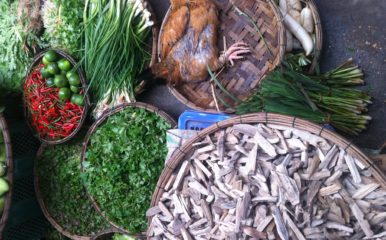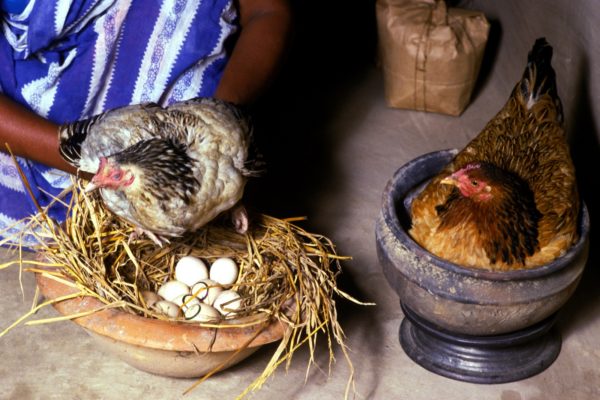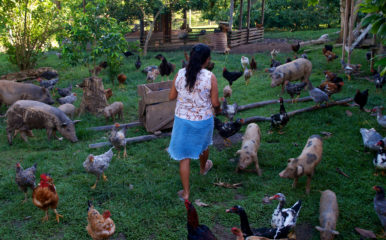
Roadmap Series
Poultry production: the gender dimension
Published on 20/01/2021
How is the role and remuneration of women in raising poultry changing as production systems intensify?

F. McDougall/FAO
This event featured panellists Dr Clarisse Ingabire, livestock specialist at the Food and Agriculture Organization (FAO), and Dr I Made Setiawan, lecturer and researcher in the Public Health Department, Faculty of Medicine, Udayana University, Indonesia. It was moderated by Professor Robyn Alders of Chatham House, UK, and took place on Wednesday 20 January 2021.
Watch the recording here:
PANELLISTS' KEY MESSAGES
- Extensively raised poultry are kept with minimal input of resources and are considered a very important contributor to smallholder’s livelihood, food security and nutrition, and the most favourable for rural women, for income generation.
- Strengthening smallholder poultry production, with investment in biosecurity, AMR control, will help to ensure that animal husbandry activities are in harmony with the natural environment.
- Providing women with access to assets, credits programs, access to market, training, and support will increase poultry productivity and output.
- Providing low-income households, including women, with support for animal-husbandry and training for animal rearing, safety management, decision-making skills along with nutrition education will contribute to women’s empowerment and self-reliance.
- Poultry rearing in Bali is almost gender neutral due to its economic versatility; profitable low input short term investment, everybody in the family contributes and (enjoys the result in many ways).
- Poultry rearing activities are embedded in traditional culture that add many values beyond economics, such as requirements to care for the chicken as they have spiritual values.
- Public health ramifications of poultry rearing culture – with the current COVID-19 pandemic and absence of tourism income, small scale chicken rearing is one of the popular economic alternatives among lower-income tourism industry workers.


